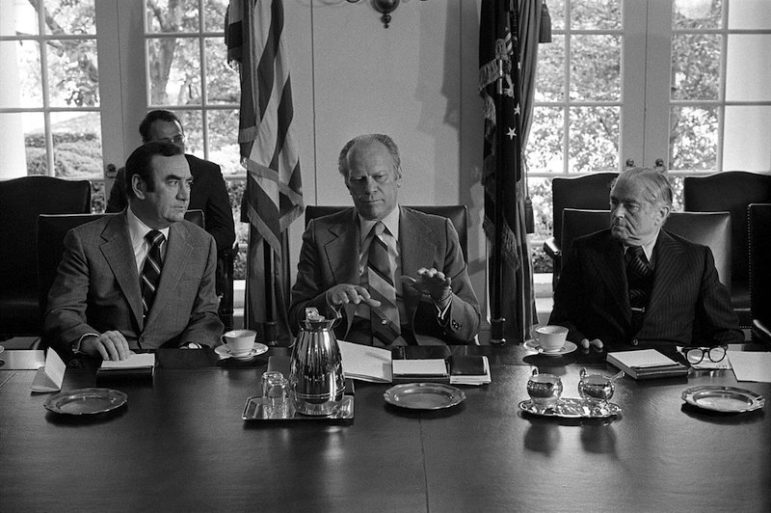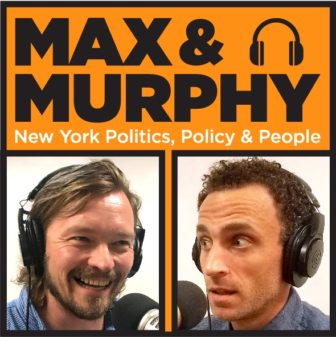The crisis is held up as a morality tale about the limits of democracy and progressive government—lessons that some would apply to our current, pandemic-driven emergency.

U.S. National Archives and Records Administration
Crisis meeting, May 1975: President Ford explains to Governor Hugh Carey (left) and Mayor Abe Beame (right) that New York is on its own.The 1970s fiscal crisis is seared in New York City’s political consciousness. The period defines the beginning of the modern city; the policies and power structure that took hold during that time profoundly shape the New York of today.
Perhaps most important, the crisis is held up as a morality tale about the limits of democracy and progressive government—lessons that some would apply to our current, pandemic-driven emergency.
But in her 2017 book Fear City: New York’s Fiscal Crisis and the Rise of Austerity Politics, Professor Kimberly Phillips-Fein’s review of the era gives us a different set of heroes, villains and takeaways from New York’s darkest hour. She joined WBAI’s Max & Murphy Show on Wednesday.
A key element of the popular parable about the 1970s crisis is that it was the inevitable result of an expansive municipal government that offered broad educational, health and recreational resources to residents and a path to the middle class to its workers. From President Ford down to local business titans, the city’s inability to finance its debt in 1975 was depicted not as the result of a complex mix of economic factors, demographic shifts, federal and state policy changes, and private investment decisions, but rather as some form of Newtonian physics or Old Testament judgement: The city should have seen it coming, and got what it deserved.
Phillips-Fein, who teaches at New York University’s Gallatin School, challenges that version of history. “I think an underlying assumption of a lot of the common wisdom is that is was just wrong for New York to do all the things it was doing—that the things it was doing was sort of silly and frivolous and not appropriate,” she said. “And I guess I came at it from a basically different perspective of saying the kinds of things the city was doing were actually of vital importance to creating a democratic political and economic culture—not that every single thing was perfect by any means, which it wasn’t, but the project at its roots was a good one and not one to be easily or lightly dismissed, and that something important was lost as it was dismantled.”
Today, New York is on the verge of another great dismantling, with the mayor considering huge layoffs and the MTA weighing massive service cuts as the federal government dithers and the state resists any discussion of raising taxes on its wealthiest citizens—whose portfolios have swelled during the pandemic—because it fears they will abandon New York for places where it is cheaper to be rich.
Amid that, Phillips-Fein said, “I’m hoping that people can continue to defend the public sector and its importance and the necessity of it, especially when it comes to meeting the public health crisis, and to not get pushed into the anxiety that a fiscal crisis inevitably generates.”
“These crises are ultimately about power and resources and who exercises them, and people should not shy away from that now.”
Hear our conversation below:









